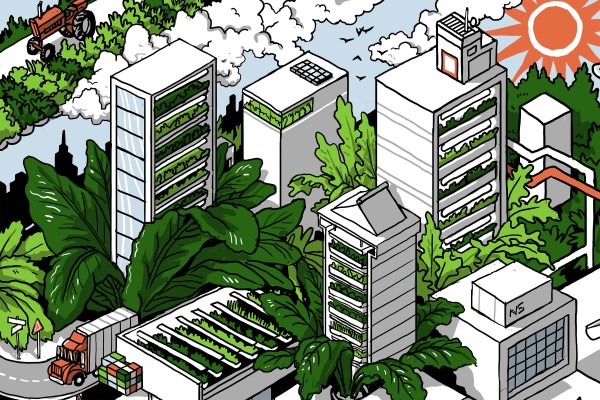Food is the very nourishment of life, but it’s also becoming increasingly challenging to grow at scale. A combination of explosive and unsustainable population growth, human-made climate change and depleted sources of clean water is contributing to overcultivation across the world.
For its many advocates, vertical farming is a critical piece to solving that puzzle, even as skeptics cite its intensive power demands as a major hurdle toward achieving the long-term positive climate impact it promises.
Existential crises of climate change and substantial food shortages have fueled interest in alternative forms of food production, while innovations in technology have created the potential for delivering those ideas at scale.
The pursuit of sustainability was a key catalyst in the formation of Bowery Farming — and, for that matter, the development of vertical farming as a whole. Global climate disasters have spurred companies and governments to increasingly explore large-scale solutions, and that’s why increasingly bullish investors are pumping money into the space — the company raised a $300 million round this May.
Companies like Bowery have captured the imagination of the public for the role they might eventually play in helping reshape the 10,000-year-old practice of agriculture. It’s big talk, but it’s unsurprising in a world inexorably drawn to the notion that the solution to righting the wrongs of decades of harmful technologies can be found in technology itself. It’s a hopeful thought.
In the first part of this TC-1, I will look at the origins of Bowery Farming as well as the vertical farming movement as a whole. I’ll also discuss how Japan’s 2011 tragic earthquake catalyzed interest in the model and also explore how these new approaches to agriculture could usher in critical changes on an Earth with rapidly changing climates.
We’re not in Kansas anymore
The best way to understand a farm is to visit it, so I set up a tour to see what Bowery is building. I intend to arrive early, making some vague plans to walk to a nearby coffee shop, set up camp with caffeine and Wi-Fi, and prep for the day. As we approached the destination, however, that plan is quickly scrapped.
As the crow flies, Bowery Farming’s Kearny, New Jersey R&D center is roughly five miles from Manhattan, but the surrounding neighborhood contains none of the trappings of bustling city life. Just industrial warehouses and little else as far as the eye can see.
